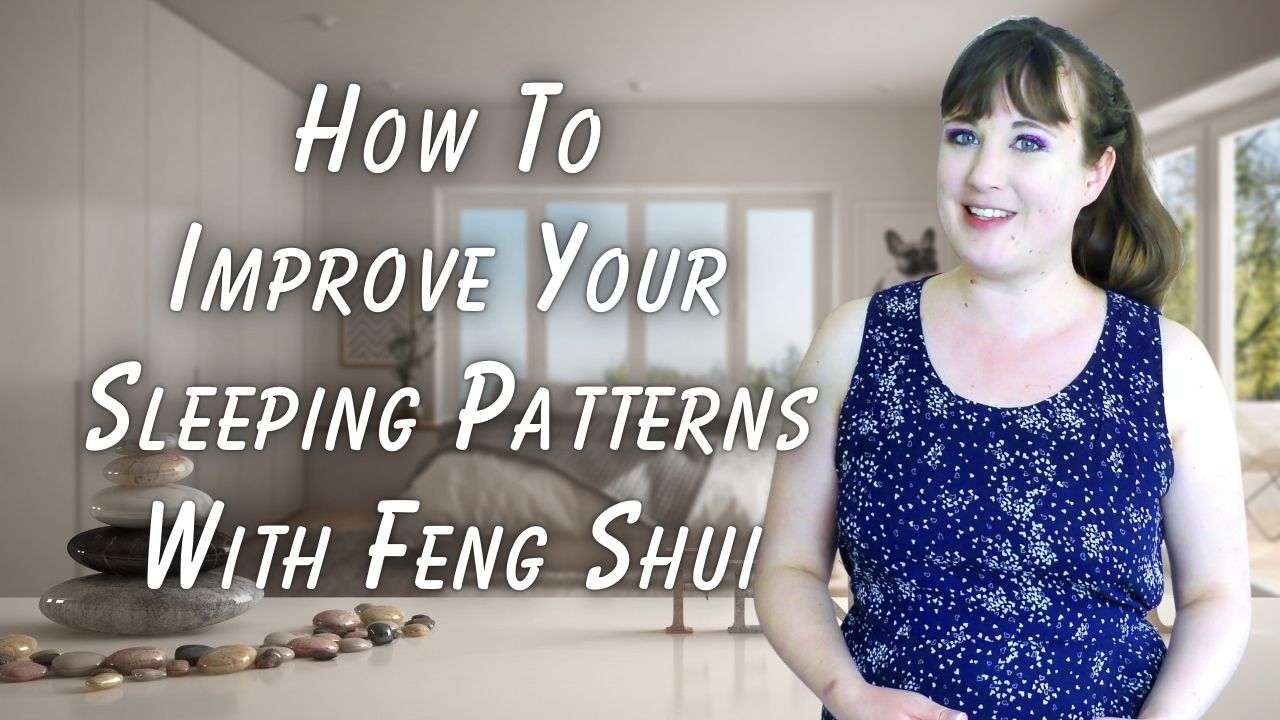
As an Amazon Associate I earn from qualifying purchases.
On the JJ Barnes Blog, I check out tips from experts in Feng Shui for how to improve your sleeping patterns, including getting rid of clutter and avoiding mirrors!
Feng Shui
Feng Shui is said to encourage harmony between our life and environment by keeping a positive and balanced energy around the house that will help establish healthy routines both in the day and at night.
Because sleeping is always an area where I struggle, I decided to find out whether bedroom Feng Shui strategies could be the answer to my problems. To help me out, Mattress Online teamed up with Feng Shui experts to send over their top tips for how to improve sleeping patterns with Feng Shui.
How To Improve Your Sleeping Patterns With Feng Shui
1. Match the sizes of your furniture
According to Suzanne Roynon, if you’re struggling to sleep, you may have created an imbalance in your bedroom through furniture choices. It is important to keep furniture like bedside tables and lights of a comparable size to foster a feeling of balance and harmony. Mismatched furniture and accessories can create a sense of inequality and instability which can seep into everyday life and family relationships.
2. Allow for air flow
Heat and snoring are often blamed for a lack of sleep, which can be mitigated by increasing the natural air flow and vital oxygen through a room. During summer nights, leaving a window open may not be enough, and turning on a fan will just move hot air around! Suzanne Roynon recommends opening doorways and windows in the rest of the house to encourage the air to flow freely.
To ensure a smooth flow of energy, Inbaal Honigman also recommends removing any obstructions.
3. Consider your bed placement
Suzanne Roynon recommends you place your bed at an angle so that it faces the door but is not directly in front of it to create a diagonal between the door and the bed. By putting a strong headboard against the wall, you’ll have a feeling of safety and prevent feelings of vulnerability. Never place the bed directly opposite the bedroom door because that will leave you feeling exhausted.
4. Keep your space clean
Feng Shui involves creating a smooth flow of positive ‘Chi’ (life-upgrading energy), and dust is one indication of energy stagnation, so notice where dust settles as a sign of ‘stuck energy’ which may influence the household. Suzanne Roynon explains that messiness neutralizes wellbeing and prosperity, and is a magnet for collecting dust. To avoid it, clear out your ‘floor-drobe’, wipe surfaces, and throw out unwanted possessions to further improve sleep quality.
5. Consider your head placement
If you’re struggling to sleep, Janine Lowe recommends you sleep with your head pointing towards North. The term “sleep of the dead” may sound alarming, but it can help you fall asleep faster and stay asleep longer. What’s more, if you’re in a couple, pointing your head towards the east is said to boost romance in the bedroom.
However, Inbaal Honigman adds that it’s just as important to keep your feet from pointing towards the door because it’s the unlucky “coffin” position.
6. Choose neutral colours
Pick neutral colours for your bedroom room walls such as earth tones, pastels or delicate shades of blue and green. According to Denise O’Dwyer, these can have a quieting impact on the space and support rest. Avoid bright colours because they can cause over stimulation and disrupt sleep.
In your bedroom, soft ambient lighting can also create a cozy and peaceful atmosphere. Check for any spots of unnecessary shadow and light them up, as according to Feng Shui, shadows slow down your flow of energy.

7. Hang harmonious art
Art, decor and mementoes can also subliminally influence a room, and may trigger negative thoughts and even bad dreams. According to Suzanne Roynon, the bedroom ought to be a place where people can unwind, fall in love, and rest, so it’s important to choose pieces of art that are calm and supportive.
Denise O’Dwyer advises that choosing art or pictures which inspire serenity, harmony and balace is critical to establishing a soothing climate. She suggests avoiding images of water and bold or excessive decorations because they can cause the room to feel out of balance.
8. Don’t sleep under heavy fixtures
Denise O’Dwyer advises against sleeping under heavy fixtures because they can cause a sense of increased pressure and make it more difficult to relax. Avoid sleeping under heavy beams or ceiling fixtures.
9. Avoid having mirrors in your bedroom
According to our Feng Shui experts, you should get rid of all mirrors in your bedroom. Yet, in the event that this is preposterous, opt for closets with attached mirrors on the inside. If you can see yourself or the bed in the reflection of a mirror, Janine Lowe says, it can make you restless and make it hard to sleep.
Conclusion
Feng Shui expert Inbaal Honigman explained that the art of Feng Shui aligns and harmonises all of the energies in the house, creating a balanced environment. When we feel aligned, we are calmer, work more proficiently, have better states of mind, and are able to rest and sleep better.
Amazon and the Amazon logo are trademarks of Amazon.com, Inc, or its affiliates.







